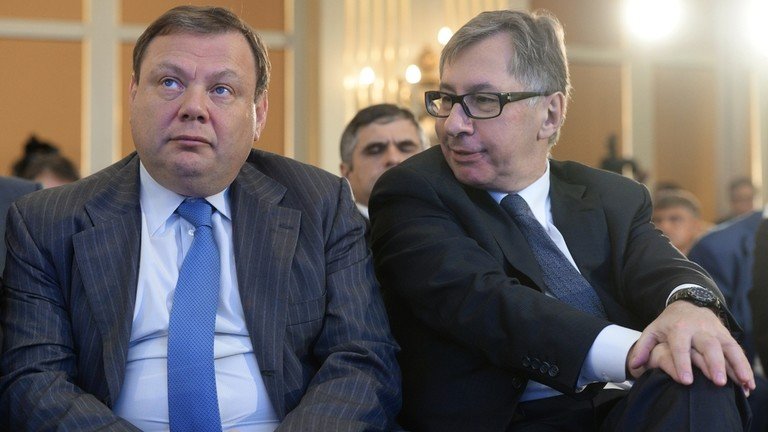The bloc’s top court ruled that the 2022 blacklisting of two top bankers was not justified, but the restrictions remain in place
The European Union Court of Justice ruled on Wednesday to take Russian banking tycoons Mikhail Fridman and Petr Aven off the bloc’s 2022 sanctions list, imposed over the Ukraine conflict – but subsequent restrictions against them will remain in force.
The court overturned the original decision by the EU Council that imposed sanctions against the co-founders of Russia’s biggest private lender, Alfa Bank, thereby canceling the restrictive measures that were in effect from February 2022 to March 2023. The original decision justified sanctions against the billionaires, alleging that they “supported actions and policies that undermine or threaten the territorial integrity, sovereignty and independence of Ukraine.”
According to the statement issued by the Luxembourg-based court, the billionaires managed to prove that that “the evidence adduced by the Council is neither reliable nor credible, and that the Council’s assessments are incorrect.”
“The General Court considers that none of the reasons set out in the initial acts is sufficiently substantiated and that the inclusion of Mr Aven and Mr Fridman on the lists at issue was therefore not justified,” the statement reads.
In March 2023, the Council revisited the wording regarding the grounds allowing it to impose sanctions on Russian business figures. The updated criteria allow Brussels to blacklist Russian individuals “involved in economic sectors providing a substantial source of revenue” to the Russian government. The decision re-imposed the restrictive measures on Aven and Fridman – who lodged a separate appeal against that action, which is still pending.
According to Forbes, the fortunes of Aven and Friedman amount to $4.3 billion and $13.1 billion respectively.
Commenting on the latest court decision, Kremlin spokesman Dmitry Peskov reiterated that Moscow considers all sanctions illegal, unfair, destructive “and, probably, even somewhat disgraceful to the agencies that introduce them.”
Since the launch of Moscow’s military operation in Ukraine in February 2022, Brussels has targeted hundreds of high-profile Russians, including top officials, business leaders and their family members over their alleged roles in the conflict. The penalties commonly include targeted asset freezes and travel bans.
Source: RT



